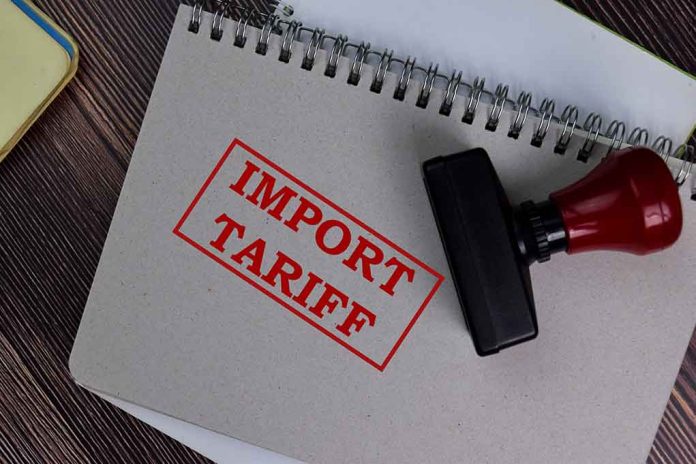
Biden imposes a 100% tariff on Chinese electric vehicles to counter potential espionage activities.
At a Glance
- Biden administration puts a 100% duty on Chinese electric vehicles.
- New measures aim to prevent espionage and cyber-attacks by foreign entities.
- Ban on Chinese and Russian hardware/software starting in 2027.
- Significant implications for U.S. autonomous vehicle industry.
A Strong National Security Move
In a decisive step to protect national security, President Joe Biden has imposed a 100% tariff on electric vehicles imported from China. The move is part of a broader strategy by the Department of Commerce to eliminate foreign software and hardware from U.S. internet-connected vehicles, including autonomous cars. By addressing potential threats from foreign actors, the administration aims to avert espionage and cyber-attacks. The ban on Chinese and Russian hardware is set for 2030, whereas the software ban will begin impacting the 2027 model year.
The Biden administration proposed new rules blocking the sale or import of connected vehicle software from “countries of concern,” effectively banning all auto imports from China. The White House cited national security threats, including potential sabotage and surveillance, as reasons for the ban. Regulations will cover Bluetooth, Wi-Fi, cellular and satellite components, as well as cameras, sensors, and onboard computers. These regulations stem from a Commerce Department investigation into connected vehicle software from China and other antagonistic nations.
US set to impose 100% tariff on Chinese electric vehicle imports https://t.co/Ixm1cBwF2A
— Financial Times (@FT) May 10, 2024
Implications for the American Automotive Industry
American automakers and suppliers must remove Chinese-made software and hardware from their vehicles in the coming years. New tariffs on Chinese imports, including a 100% duty on electric vehicles and hikes on batteries and key minerals, were recently locked in. These measures continue ongoing trade restrictions on Chinese-made light-duty vehicles and component parts. China, currently the No. 1 auto exporter globally, produces budget-priced EVs like the BYD Seagull, making this tariff significant for the Chinese automotive industry.
“We’ll secure our cars and we’ll secure the American people, including our children, from potential surveillance, remote access and control, and protecting Americans from bad actors and trying to give every American peace of mind,” Raimondo said on the call.
US officials and auto executives worry that Chinese EV imports could harm domestic manufacturers. The software ban will take effect beginning in model year 2027 and the hardware prohibition for model year 2030. These new rules could mirror provisions in federal EV tax credits, which exclude vehicles with Chinese-made battery components. The Autonomous Vehicle Industry Association supports the Biden administration’s stance, emphasizing national security as a primary concern.
An Urgent National Security Issue
The U.S. Commerce Department proposed a national security ban on certain Chinese and Russian-made car parts starting in 2027. The ban targets hardware and software components that connect vehicles to the outside world, including Bluetooth, satellite modules, and driverless systems. National Security Adviser Jake Sullivan cited evidence of China pre-positioning malware on critical infrastructure as a primary concern. FBI Director Christopher Wray also warned Congress about China’s targeting of American infrastructure.
“This is not about trade or economic advantage,” Raimondo said. “This is a strictly national security action.”
The ban aims to enhance personal security for U.S. drivers by preventing potential surveillance and remote access. U.S. Secretary of Commerce Gina Raimondo described the ban as a proactive measure, citing the current low number of Chinese cars on U.S. roads. In 2023, 104,000 Chinese-made cars were sold in the U.S., a 45% increase from the previous year. Raimondo pointed to Europe as a cautionary example, with nearly 500,000 Chinese-made cars on European roads. Raimondo emphasized that the ban is a national security action, not about trade or economic advantage.







